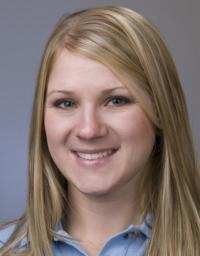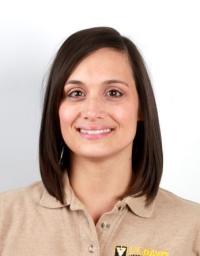Contact
Ophthalmology Service
Telephone
(530) 752-1393
Cataract Information Line
(530) 754-0264
Location
UC Davis Health Science District
VMTH
1 Garrod Drive
Davis, California
Discover the latest ophthalmology clinical trials at UC Davis
Ophthalmology Service
Welcome to the Ophthalmology Service at the UC Davis Veterinary Medical Teaching Hospital. We provide advanced diagnostics, as well as routine, complex and emergency medical and surgical care to all patients with a variety of ocular disorders. Keratoconjunctivitis sicca ("dry eye"), cataracts, glaucoma, ocular neoplasia (cancer), eye injuries and infections are among the more common conditions we are presented with. We also provide CERF examinations to breeders who wish to monitor the incidence of eye disease in their breed. Specialized tests and diagnostics include slit lamp biomicroscopy, gonioscopy, tonometry (measurement of intraocular pressure), electroretinogram or ERG (a specialized test of retinal function), high-frequency ultrasound, computed tomography (CT), and magnetic resonance imaging (MRI).
The Ophthalmology Service offers a wide range of surgical and microsurgical procedures:
- Cataract surgery
- Excision and cryotherapy or radiation therapy for tumors of the eye and eyelids
- Blepharoplastic procedures, which involve the correction of eyelid abnormalities
- Surgical repair of prolapsed gland of the 3rd eyelid “Cherry Eye”
- Conjunctival grafting procedures for deep corneal ulcers
- Corneal transplants
- Cyclosporine Implants (horses only)
Our service of faculty, residents, and technicians provide a team approach to each patients care. The Ophthalmology Service provides 24 hour, 7 days a week emergency coverage for small and large animal patients.
Clinical Activities and Procedures
Examination
Regardless of the presenting complaint, all new patients of the Ophthalmology Service receive a complete examination of both eyes. A senior veterinary student performs the initial evaluation, which is followed by an examination by a resident and/or a faculty member. If indicated, consultations with other specialty services at the Veterinary Medical Teaching Hospital are available.
Diagnostic Testing
Many ocular conditions require further diagnostic testing. Specialized diagnostic procedures commonly performed include tonometry (measurement of intraocular pressure), electroretinography or ERG (a specialized test of retinal function), ultrasound, computed tomography (CT), and magnetic resonance imaging (MRI).
Surgical Procedures
The Ophthalmology Service offers a wide range of surgical and microsurgical procedures.
- Cataract surgery performed with phacoemulsification, and implantation of prosthetic intraocular lenses (IOLs)
- Excision and cryotherapy or radiation therapy for tumors of the eye and eyelids
- Removal of eye (enucleation)
- Blepharoplastic procedures, which involve the correction of a number of eyelid abnormalities
- Repair of traumatic injuries
- Conjunctival grafting procedures for deep corneal ulcers
- Corneal transplantation
- Cyclosporine implants (horses)
- Endolaser / transscleral cyclophotocoagulation (for glaucoma)
- Laser retinopexy
Emergency Coverage
The Ophthalmology Service provides 24 hour, 7 day a week emergency coverage for small and large animal patients. If necessary, emergency surgical procedures can be performed in cooperation with the Anesthesia Service.
Frequently Asked Questions
- Can my pet have surgery or all the necessary diagnostic tests the same day as the appointment?
- Some diagnostic tests can be performed on the same day as your initial visit. Other tests requiring general anesthesia or advanced imaging (such as MRI or CAT scans) will be scheduled based on availability, often on a different day.
- Do you have appointments after 5 p.m. or on the weekends?
- Unfortunately we cannot offer routine office visits on the weekends or after 5 p.m. during the week. However, we can be contacted for emergencies. Should an emergency arise we ask that you go to your regular veterinarian or local emergency clinic. If a referral to the VMTH is deemed necessary, your veterinarian can contact our ophthalmologists 24 hours per day.
- Does my pet have to spend the night before or after surgery?
- Pets are admitted to the VMTH the day prior to scheduled surgery to allow time for thorough pre-anesthetic evaluation. They remain hospitalized at the VMTH until the day following their surgery so that we may ensure a safe and comfortable recovery.
- How much does cataract surgery cost and what does that include?
- Preoperative assessment, surgical removal, and postoperative treatment of cataracts comprise a complex series of steps specifically tailored to your pet. This means that optimal treatment of cataracts takes multiple visits and varies from patient to patient. Therefore, it is difficult to give a firm idea of costs. However, when you bring your pet in for the initial eye exam with us you will be given an estimate of costs specific to your pet. In particular, your pet's species, age, general and ocular health, and previous medical problems are of major importance when we design the plan for your pet's care. Pets undergoing cataract surgery require an initial examination, an electroretinogram or ERG, to determine their retinal function, medications, general anesthesia, hospitalization for 2 nights, and of course the cataract surgery itself. Please note that it is not possible to have surgery done the same week as your initial visit with us. A number of postoperative recheck examinations are essential to your pet's surgical success (typically 7 in the first year, 3 of which in the first 2 months after surgery). The cost for these and any medications prescribed at them is not included in the initial estimate.
- Do I have to come back to UC Davis for rechecks after surgery or can I go somewhere closer?
- In many situations, your regular veterinarian may be able to provide management for your pet’s eye disease based on our recommendations. For more complicated eye diseases, however, your regular veterinarian may depend on us to provide long-term management, requiring your recheck visits to be performed by one of our ophthalmologists.
- What does a regular ophthalmology appointment include, and what does it cost?
- Please plan to spend a minimum of 1.5 hours with us for your first appointment. All ophthalmology appointments include examination by both students and doctors. The student will obtain a thorough history of your pet's problem and then examine your pet's eyes. The student will then leave the room to relay his or her findings to the doctor. Both will return to complete the examination and discuss recommendations with you. A full report of the examination findings will be provided to you prior to your departure. Please contact us at 530-752-1393 to discuss examination and price costs. Some extra tests may be performed on the same day as the initial examination (requiring extra time); however, additional tests often have to be scheduled for a separate day.
- Can you do surgery for free to teach the students?
- No. We would not be able to provide the advanced level of care that we do without charging for our services. Fees are required to support the cost of the equipment and staff involved in your pet’s care.
- Can you recommend medications for my pet without examining it?
- Because many eye conditions present with similar signs and symptoms, it is impossible to make a correct diagnosis over the phone. It is also illegal and unethical to prescribe treatment for a patient and client with whom we have not established an appropriate client-veterinarian-patient relationship. For these reasons, it is not possible to prescribe any treatment without seeing your pet. We therefore require a full examination prior to making any recommendations for your pet.
- Do you have to repeat the tests my vet did and should I bring all of the results with me?
- It is important to bring all recent test results with you. Sometimes we do have to repeat tests if there were abnormalities that your veterinarian found, if the tests were not performed recently enough or if something might have changed between the test results and your visit to the VMTH.
- Does my pet have to wear an E-collar after eye surgery?
- An Elizabethan or E-collar usually is critical to successful eye surgery. The eye is especially fragile after surgery and pets can cause irreversible trauma to the eye if an e-collar is removed prematurely. We know they can be awkward and will recommend they are removed as soon as it is safe to do so.
- I’ve heard there are drops available to treat my pet’s cataracts. Is this true?
- Medical remedies have been inaccurately advertised as effective for the treatment of cataracts. There is no proven medical treatment known to reverse or slow the progression of, or prevent the formation of a cataract. Some promoted agents actually worsen the cataracts rather than improve the condition. Surgery is the only known treatment both in animals and humans, and often provides a return of functional vision to pets.
Faculty

Kathryn Good, DVM, DACVO
Professor
Chief of Service

Lauren Charnock, DVM, MS, DACVO
Assistant Professor

Soohyun Kim, DVM, PhD, DACVO
Assistant Professor

Bianca C. Martins, DVM, PhD, DACVO
Associate Professor
Ophthalmology Equine Liaison

Sara M. Thomasy, DVM, PhD, DACVO
Professor
House Officers

Allyssa Cloet, DVM
Resident I

Erinn Mills, DVM
Resident III

Sangwan Park, DVM
Resident IV

Allison Shannon, DVM
Resident II

George Thelwell, BVetMed, MRCVS
Resident I
Staff

Irene E. Birtcil, RVT

Macey Galloway
Animal Health Technician

Ashley Hayes, RVT

Carly Jones, RVT

Sheri Tatham, RVT

Nikki Rochin, RVT
Service Supervisor

Pam McInnis
Ophthalmology Service Referral Coordinator

Megan Loscar, RVT
Small Animal Specialties Manager

